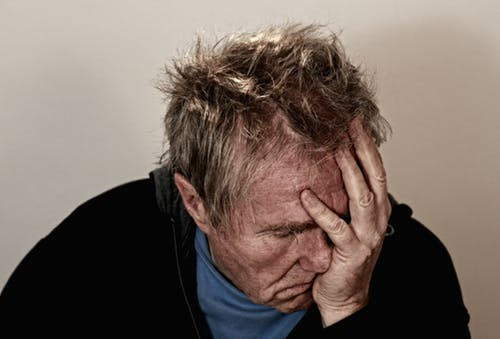The stories have become common. Elderly people that are mistreated, that are abused and neglected. Elderly residents of nursing homes that are left to fend for themselves, when they are clearly unable to do so when hurricanes or other natural disasters strike. Elderly patients that end up losing their lives when they are supposed to be receiving the necessary care in a nursing home.
How does nursing home negligence present itself?
Negligence in a nursing home can take the form of physical abuse, emotional abuse, financial abuse or neglect. And the reason more complaints about this mistreatment are not voiced is obviously because the people on the receiving end of it are older, frail, and vulnerable.
What are the most common types of claims in nursing home cases of negligence?
Physical abuse
When physical abuse, which can also include assault and battery are displayed against elderly residents of nursing homes, burn marks, welts, cuts, bite marks, bruises, visible discolorations, and unexplained wounds are part of the picture. Although other manifestations such as weight loss and behavioral changes also occur.
Emotional or psychological abuse
Signs of this type of abuse are much more difficult to be noticed, but they include humiliating, terrorizing, ridiculing and even plain ignoring of patients and their needs. Some manifestations of these behavioral issues include low self-esteem, changes in sleeping patterns and mood swings.
Neglect
This refers to the intent to specifically and intentionally harm a resident. It happens when residents are repeatedly berated, ignored or left alone. Physical neglect deals with a resident being deprived of basic hygiene needs, food and water, while medical neglect refers to residents not receiving their needed treatment or medications.
Who Is Legally Liable For Negligence And Abuse In Nursing Homes?
The nursing home can be held liable if any of the following were involved in causing harm to a resident or patient at their facility:
- Negligence when hiring staff
- Insufficient number of workers or assistants
- Inadequate or insufficient training
- Errors in dispensing medications or delivering medical treatment
- Bad acts of its employees
- Breach of statutory or regulatory obligations
Part of the care that residents of nursing homes receive is provided by contractors, vendors or third parties that nursing homes often hire. These outsourced individuals may, in some circumstances, also be liable for abuse or neglect of a resident.
An example of these situations may occur when either another resident or a guest who is visiting the nursing home harms a resident. In a case like this one, the private security firm that has been hired to provide safety to the nursing home may be liable for negligence, and consequently on the financial hook for damages.
Get the legal help you need
Nursing home abuse indicates that the caregiver means to harm the elderly resident, while nursing home neglect points to substandard care, or a breach of duty, that causes harm to the person involved. In both cases, the activities of the caregiver must be expected to cause harm to the resident who has been neglected. If you or a loved one has suffered neglect or abuse, you should visit this website to understand what kind of help you or your loved one can get.
This article does not necessarily reflect the opinions of the editors or management of EconoTimes.



 TrumpRx Website Launches to Offer Discounted Prescription Drugs for Cash-Paying Americans
TrumpRx Website Launches to Offer Discounted Prescription Drugs for Cash-Paying Americans  Tencent Shares Slide After WeChat Restricts YuanBao AI Promotional Links
Tencent Shares Slide After WeChat Restricts YuanBao AI Promotional Links  Trump Backs Nexstar–Tegna Merger Amid Shifting U.S. Media Landscape
Trump Backs Nexstar–Tegna Merger Amid Shifting U.S. Media Landscape  Alphabet’s Massive AI Spending Surge Signals Confidence in Google’s Growth Engine
Alphabet’s Massive AI Spending Surge Signals Confidence in Google’s Growth Engine  Global PC Makers Eye Chinese Memory Chip Suppliers Amid Ongoing Supply Crunch
Global PC Makers Eye Chinese Memory Chip Suppliers Amid Ongoing Supply Crunch  Missouri Judge Dismisses Lawsuit Challenging Starbucks’ Diversity and Inclusion Policies
Missouri Judge Dismisses Lawsuit Challenging Starbucks’ Diversity and Inclusion Policies  Weight-Loss Drug Ads Take Over the Super Bowl as Pharma Embraces Direct-to-Consumer Marketing
Weight-Loss Drug Ads Take Over the Super Bowl as Pharma Embraces Direct-to-Consumer Marketing  Washington Post Publisher Will Lewis Steps Down After Layoffs
Washington Post Publisher Will Lewis Steps Down After Layoffs  TSMC Eyes 3nm Chip Production in Japan with $17 Billion Kumamoto Investment
TSMC Eyes 3nm Chip Production in Japan with $17 Billion Kumamoto Investment  Sony Q3 Profit Jumps on Gaming and Image Sensors, Full-Year Outlook Raised
Sony Q3 Profit Jumps on Gaming and Image Sensors, Full-Year Outlook Raised  CK Hutchison Launches Arbitration After Panama Court Revokes Canal Port Licences
CK Hutchison Launches Arbitration After Panama Court Revokes Canal Port Licences  Uber Ordered to Pay $8.5 Million in Bellwether Sexual Assault Lawsuit
Uber Ordered to Pay $8.5 Million in Bellwether Sexual Assault Lawsuit  Hims & Hers Halts Compounded Semaglutide Pill After FDA Warning
Hims & Hers Halts Compounded Semaglutide Pill After FDA Warning  Instagram Outage Disrupts Thousands of U.S. Users
Instagram Outage Disrupts Thousands of U.S. Users  Ford and Geely Explore Strategic Manufacturing Partnership in Europe
Ford and Geely Explore Strategic Manufacturing Partnership in Europe  Prudential Financial Reports Higher Q4 Profit on Strong Underwriting and Investment Gains
Prudential Financial Reports Higher Q4 Profit on Strong Underwriting and Investment Gains  Rio Tinto Shares Hit Record High After Ending Glencore Merger Talks
Rio Tinto Shares Hit Record High After Ending Glencore Merger Talks 































